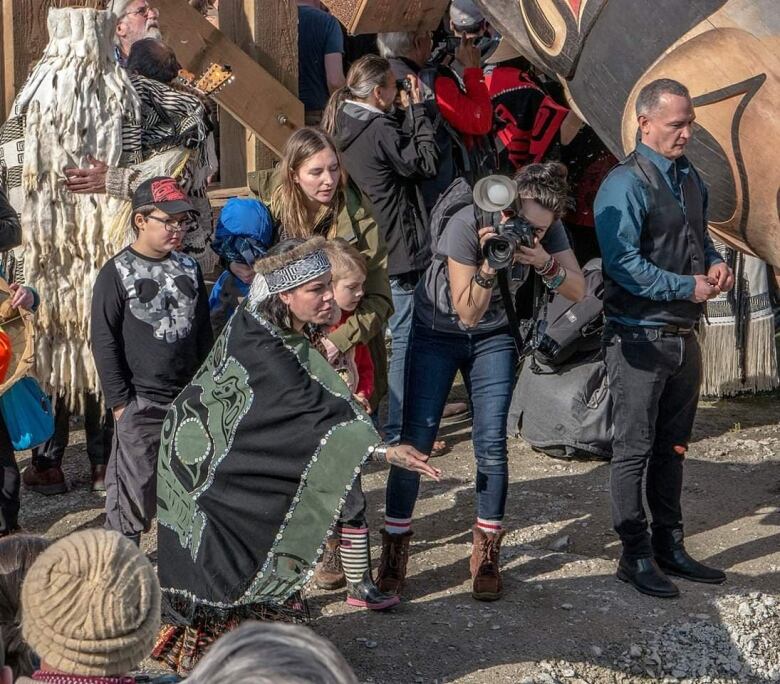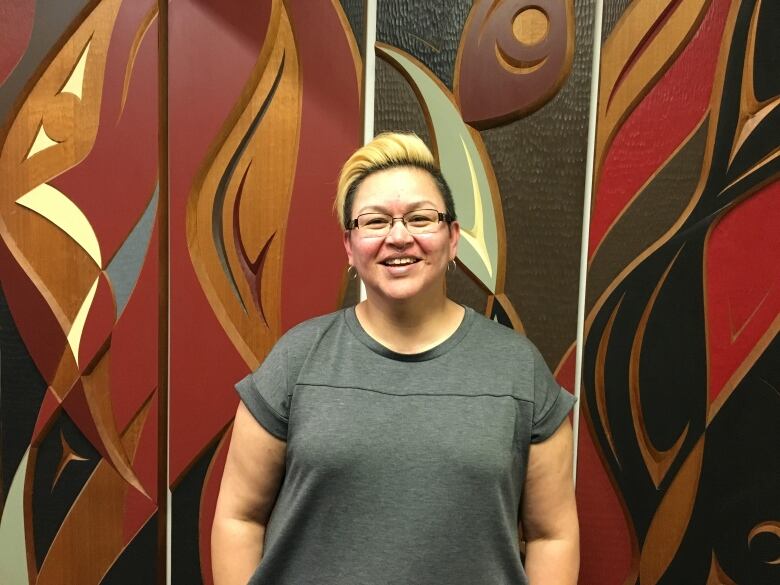What does reconciliation mean to Indigenous people?
If it means friendly relations or equal access, a new word is needed, leaders say

Reconciliation has emerged as a buzzword in Canada over the last three years.
Prime Minister Justin Trudeau even proclaimed a national day of reconciliation in 2018. He's also pushed his Indigenous rights recognition framework and stirred debate on ending or "decolonizing" the 1876 Indian Act, which gave Ottawa control over most aspects of Indigenous life, from health and education to land.
However, much like the relationship it aims to fix, there is uncertainty about the concept of reconciliation amongsome Indigenous people in Canada.
Sandlanee Gid, her traditional name,is aninstructor of Reconciliation Studies through the University of British Columbia and the Haida Gwaii Higher Education Society.
She struggles with thevery meaning of the word.
"Reconciliation means that you had a good relationship to begin with and then you're reconciling the relationship, in particularwith the Canadiangovernment," she said.
"But the relationship has never been good," Sandlanee Gidsaid from her home inHaida Gwaii.

She pointed to the more than 250Canadian courtcases that Indigenous people have wonsomething lawyer and author BillGallagherhas outlined in his book Resource Reckoning to be released later this year.
She also said many Indigenous peopledon't have access tobasic human rightslike clean drinking water, safety and education, whichother Canadians enjoy, arguing this is evidencethat there is not a positive relationship to this day.
Conciliation orReconciliation?
What's needed first, Sandlanee Gidand others argue, is a process of conciliation which the Oxford dictionary describes as"the action of mediating between two disputing people or groups" before reconciliation can occur.
Joanne Millsis also concernedabout overuseof the word. She is the executive director of theFraser Region AboriginalFriendship Centre in Surrey.
"[Reconciliation in Canada] is more about the acknowledgement that there were wrongs,but there isn't a lot of action attached to it," Mills said.
She said it's difficult to be talking about reconciliation whileone party is in power and another is still asking for rights from the former.
"There definitely isn't an equal power distribution. We're not coming to the table as peers, we're still coming to the table ashave and have-nots," she added.
'Learn the truth'
Mills said for meaningful reconciliationwith the federalgovernment to take shape, there needs to be an honest attempt to restore to Indigenous people what was taken at the time of colonization.

But she saysthe conversations remainbasic.
"I just don't want to talk about the stereotypes anymore. People should go and educate themselves and learn the truth," Mills said.
She saidinequality also remains in areas that areprovincial responsibilities, such as thehigh rates of Indigenous kids in foster care in B.C., access to education and overrepresentation of Indigenous people in prison.
B.C. hasseen changes in elementary and secondaryschool curriculumto include more education about Indigenous people, but there have been bumps along the way. Some teachers say they are at a loss on how to teach Indigenous content. Others say they lack sufficient resources.
A task force also formed looking at the overrepresentation of Indigenous people in prison.
Hope for future
Organizations like Reconciliation Canada and UBC's reconciliation course have bolsteredmore dialogue about Indigenous people historically and today.
Sandlanee Gid says the hope for heris seeingnon-Indigenous people geteducated.
When non-Indigenous students learnabout the paternalism of pastgovernmentpolices, many reflect hard on their own attitudes.
"They realize they don'twant to be called an ally because it'skind of like white Saviour shipand they realizethey need to just respect culture and be an advocate when they see injustice," she said.

For survivors of residential school, the conversations around reconciliation have been paramount to creating needed changes in Canada.
One of the founders of Reconciliation Canada is survivor Robert Joseph. His daughter, Shelly Joseph, now works for the organization.
"My fatherhad a dream many years ago and in it, hesaw5,000people walking through the streets of Vancouver in the spirit of unity [for reconciliation]," Joseph said.
That dream was realized in 2013 when 70,000 people braved pouring rain for the inauguralWalk for Reconciliation in downtown Vancouver.
Joseph'sdad wanted to make surepeople knew about the history, andto support survivors, but also make sure everyone had the same treatment.
"What my dad calls a blue-sky visioning when we are reconciledthere won't be anybody suffering here in Canada."












_(720p).jpg)


 OFFICIAL HD MUSIC VIDEO.jpg)
.jpg)



























































































